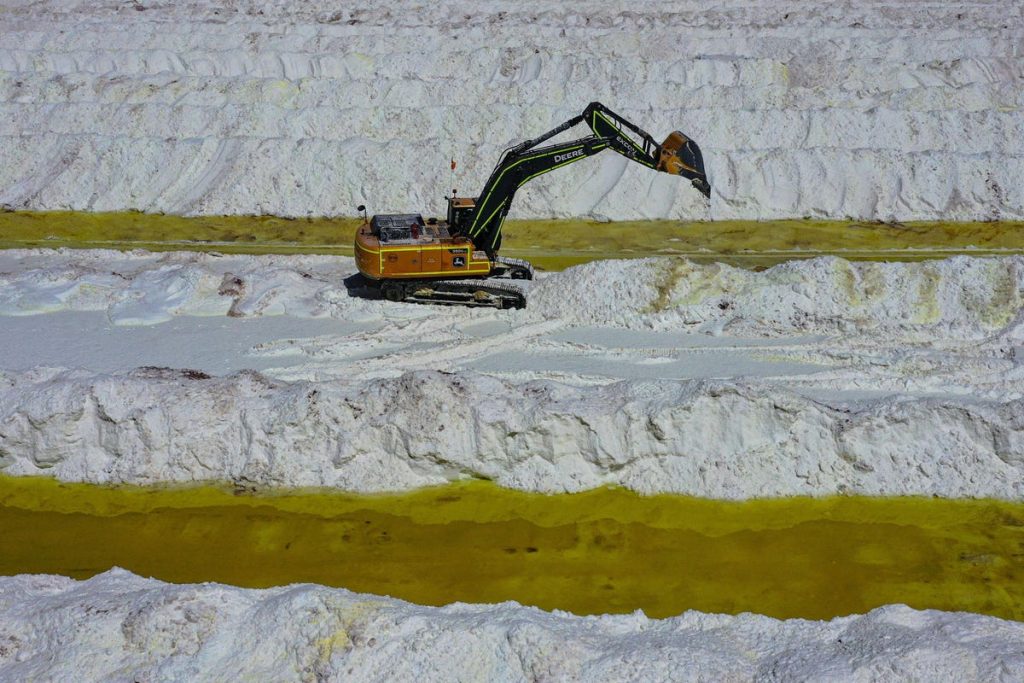If you track a liter of lithium from the bowels of the earth to the Gigafactory, you will learn about the politics of climate change, business-government relations, foreign direct investment (FDI) and the UN’s sustainability development goals (SDGs).
Every month, the UN features one of its SDGs that aim to end poverty, protect the planet or ensure that by 2030, all people enjoy peace and prosperity. April’s SDG focuses in part on the cohesion of all 193 governments’ and their policies related to sustainability (e.g. legal and regulatory frameworks). Lithium and other minerals will play a central role, so it is necessary to explore some challenges with collective efforts to use them in a manner that accounts for global goals and national realities.
The Mexican government recently announced it will tighten its control of lithium deposits in spite of its promise to not interfere with foreign mineral exploration investments. This development comes several months after Mexico nationalized lithium reserves, and it spotlights the role of this coveted commodity in the tenuous dynamic between host governments and foreign investors in the mining space.
As the calendar moves closer to 2030, these minerals will play an increasingly important role in the global economy. Minerals will remain at the nexus of geopolitics, FDI, and the UN’s major undertaking to fulfill its SDGs. Let’s explore the relationship between these factors and the complicated challenges for host governments.
Climate Change
The rapid deployment of clean energy technologies implies a significant increase in demand for minerals. The extraction process is long and complicated, requiring the expertise of industry specialists. The speed at which the global economy will embrace clean energy products like electric vehicles is directly proportional to the speed at which mining companies can extract lithium and other minerals from the earth.
Takeaway: Minerals play a significant role in the development of clean energy products and, consequently, in global efforts to achieve the UN’s 17 SDGs.
FDI Tech Transfer
Many host governments and the private enterprises in those countries lack access to the requisite technology and the expertise to apply it. For this reason, countries such as Zimbabwe, Namibia and Mexico have encouraged foreign investors to bid on concessions that authorize them to extract these minerals in their countries. While private companies are helping accelerate this process, foreign control over valuable natural resources can trigger nationalist sentiment and government interference in such projects (as is happening in Mexico). One way for host governments to assert control over this commodity is through regulatory changes after investors have sunk a significant amount of money into projects. While the changes are sometimes necessary to comply with shifts in global regulatory frameworks, the modification is merely a more subtle form of expropriation in many cases.
Takeaway: FDI is essential to accelerating the use of clean energy products, and inbound investors value policy stability above all other assurances from the host government.
The Cohesion of UN SDGs: Policy Flexibility
One of the main requirements for governments that have signed onto the UN sustainability challenge is harmonization of laws and regulations across many different industries. Goal 17 explains the difficulty and necessity of bringing multiple governments together to streamline policies while also allowing for changes that are likely to occur as technology evolves.
Takeaway: Based on the fact that technology and strategies for managing the risks associated with mining are evolving, host governments need to be flexible when it comes to policymaking.
Conclusion
While the conflict between foreign and domestic interests in coveted natural resources is not new, the fight for control over lithium has an added layer of complexity. To harmonize regulations and deal with the reality of new decision-makers and regulatory changes every election cycle, host governments need to establish frameworks that are flexible and open to change. They have to balance foreign investors’ need for stable frameworks, along with the UN’s global interests and changing regulations to account for contextual changes in lithium extraction.
Read the full article here




